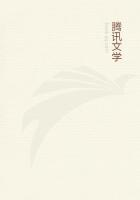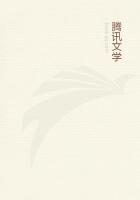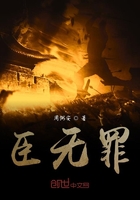Up to this day, the criterion of certainty remains a mystery;this is owing to the multitude of criteria that have been successively proposed.Some have taken for an absolute and definite criterion the testimony of the senses; others intuition; these evidence; those argument.M.Lamennais affirms that there is no other criterion than universal reason.Before him, M.de Bonald thought he had discovered it in language.
Quite recently, M.Buchez has proposed morality; and, to harmonize them all, the eclectics have said that it was absurd to seek for an absolute criterion, since there were as many criteria as special orders of knowledge.
Of all these hypotheses it may be observed, That the testimony of the senses is not a criterion, because the senses, relating us only to phenomena, furnish us with no ideas; that intuition needs external confirmation or objective certainty; that evidence requires proof, and argument verification; that universal reason has been wrong many a time; that language serves equally well to express the true or the false; that morality, like all the rest, needs demonstration and rule; and finally, that the eclectic idea is the least reasonable of all, since it is of no use to say that there are several criteria if we cannot point out one.I very much fear that it will be with the criterion as with the philosopher's stone; that it will finally be abandoned, not only as insolvable, but as chimerical.Consequently, I entertain no hopes of having found it; nevertheless, I am not sure that some one more skilful will not discover it.
Be it as it may with regard to a criterion or criteria, there are methods of demonstration which, when applied to certain subjects, may lead to the discovery of unknown truths, bring to light relations hitherto unsuspected, and lift a paradox to the highest degree of certainty.In such a case, it is not by its novelty, nor even by its content, that a system should be judged, but by its method.The critic, then, should follow the example of the Supreme Court, which, in the cases which come before it, never examines the facts, but only the form of procedure.Now, what is the form of procedure? A method.
I then looked to see what philosophy, in the absence of a criterion, had accomplished by the aid of special methods, and I must say that I could not discover--in spite of the loudly-proclaimed pretensions of some--that it had produced any thing of real value; and, at last, wearied with the philosophical twaddle, I resolved to make a new search for the criterion.I confess it, to my shame, this folly lasted for two years, and I am not yet entirely rid of it.It was like seeking a needle in a haystack.I might have learned Chinese or Arabic in the time that I have lost in considering and reconsidering syllogisms, in rising to the summit of an induction as to the top of a ladder, in inserting a proposition between the horns of a dilemma, in decomposing, distinguishing, separating, denying, affirming, admitting, as if I could pass abstractions through a sieve.
I selected justice as the subject-matter of my experiments.
Finally, after a thousand decompositions, recompositions, and double compositions, I found at the bottom of my analytical crucible, not the criterion of certainty, but a metaphysico-economico-political treatise, whose conclusions were such that Idid not care to present them in a more artistic or, if you will, more intelligible form.The effect which this work produced upon all classes of minds gave me an idea of the spirit of our age, and did not cause me to regret the prudent and scientific obscurity of my style.How happens it that to-day I am obliged to defend my intentions, when my conduct bears the evident impress of such lofty morality?
You have read my work, sir, and you know the gist of my tedious and scholastic lucubrations.Considering the revolutions of humanity, the vicissitudes of empires, the transformations of property, and the innumerable forms of justice and of right, Iasked, "Are the evils which afflict us inherent in our condition as men, or do they arise only from an error? This inequality of fortunes which all admit to be the cause of society's embarrassments, is it, as some assert, the effect of Nature; or, in the division of the products of labor and the soil, may there not have been some error in calculation? Does each laborer receive all that is due him, and only that which is due him? In short, in the present conditions of labor, wages, and exchange, is no one wronged?--are the accounts well kept?--is the social balance accurate?"Then I commenced a most laborious investigation.It was necessary to arrange informal notes, to discuss contradictory titles, to reply to captious allegations, to refute absurd pretensions, and to describe fictitious debts, dishonest transactions, and fraudulent accounts.In order to triumph over quibblers, I had to deny the authority of custom, to examine the arguments of legislators, and to oppose science with science itself.Finally, all these operations completed, I had to give a judicial decision.
I therefore declared, my hand upon my heart, before God and men, that the causes of social inequality are three in number: 1.
GRATUITOUS APPROPRIATION OF COLLECTIVE WEALTH; 2.INEQUALITYIN EXCHANGE; 3.THE RIGHT OF PROFIT OR INCREASE.
And since this threefold method of extortion is the very essence of the domain of property, I denied the legitimacy of property, and proclaimed its identity with robbery.














